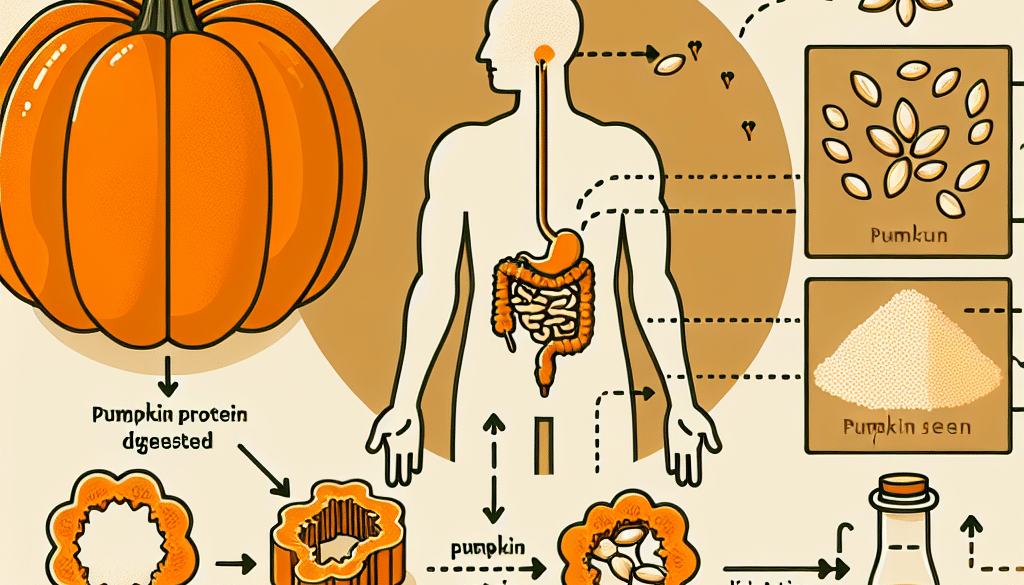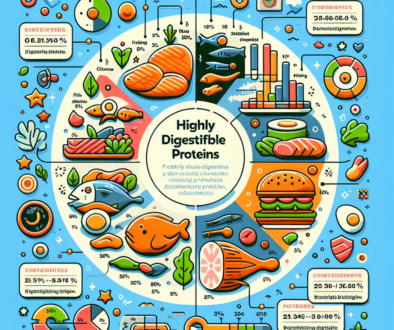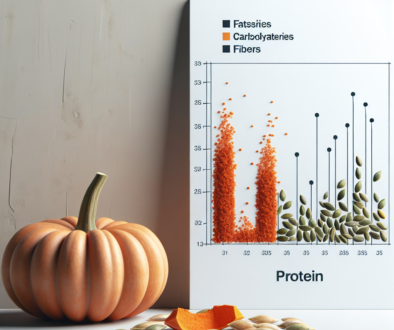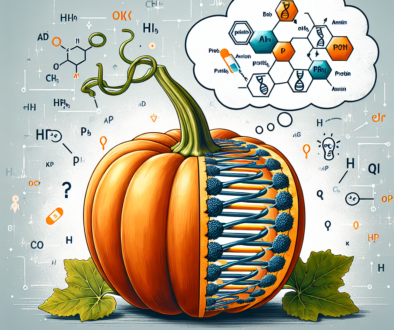Is Pumpkin Protein Easy To Digest?
-
Table of Contents
- Pumpkin Protein: A Digestible Powerhouse for Your Health
- Understanding Protein Digestibility
- The Nutritional Profile of Pumpkin Protein
- Is Pumpkin Protein Easy to Digest?
- Comparing Pumpkin Protein to Other Plant-Based Proteins
- Case Studies and Research on Pumpkin Protein Digestibility
- Practical Tips for Incorporating Pumpkin Protein into Your Diet
- Conclusion: Embracing Pumpkin Protein for Digestive Health
- Discover ETprotein’s Premium Pumpkin Protein Products
Pumpkin Protein: A Digestible Powerhouse for Your Health
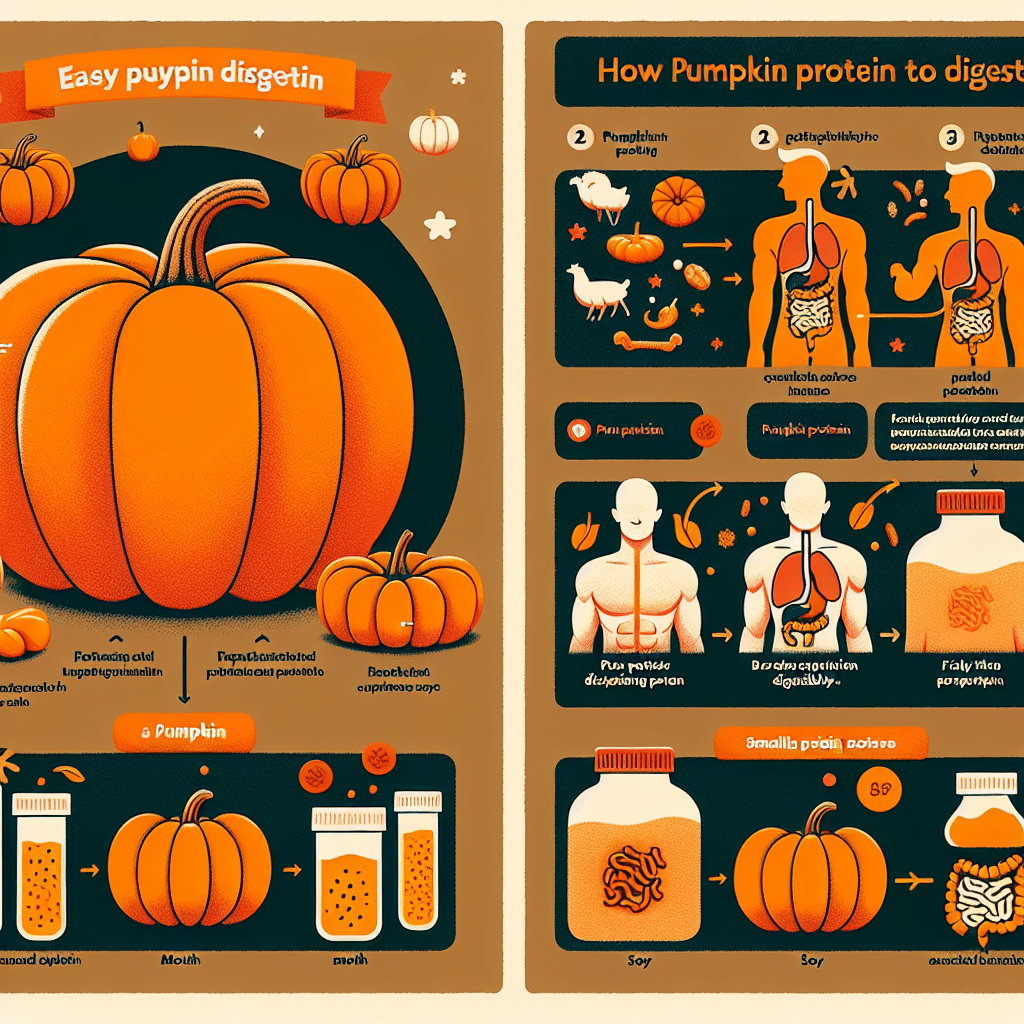
When it comes to protein sources, the usual suspects like whey, soy, and casein tend to dominate the conversation. However, with the rise of plant-based diets and the search for allergen-free alternatives, lesser-known proteins are stepping into the spotlight. Among these, pumpkin seed protein is gaining attention not only for its nutritional benefits but also for its digestibility. In this article, we’ll explore whether pumpkin protein is indeed easy to digest and what makes it a valuable addition to your diet.
Understanding Protein Digestibility
Before diving into the specifics of pumpkin protein, it’s important to understand what makes a protein easy to digest. Protein digestibility is influenced by several factors, including the source of the protein, its amino acid composition, and the presence of anti-nutritional factors that can interfere with absorption.
Animal-based proteins are often considered the gold standard for digestibility due to their complete amino acid profiles. However, many plant-based proteins have made strides in this area, with some like pumpkin seed protein offering a favorable amino acid composition with fewer digestive inhibitors.
The Nutritional Profile of Pumpkin Protein
Pumpkin seed protein is derived from the seeds of pumpkins, which are a rich source of nutrients. This protein is not only high in essential amino acids but also contains a wealth of vitamins and minerals, including magnesium, zinc, and iron. Additionally, it is a good source of dietary fiber, which can aid in digestion.
- High in essential amino acids
- Rich in vitamins and minerals
- Good source of dietary fiber
Is Pumpkin Protein Easy to Digest?
When it comes to digestibility, pumpkin protein is considered to be highly digestible for several reasons. First, it is naturally gluten-free and non-allergenic, making it a suitable option for individuals with sensitivities or allergies to common protein sources. Second, pumpkin seed protein is less likely to contain anti-nutritional factors that can impede protein absorption.
Furthermore, the fiber content in pumpkin protein can help regulate digestion, ensuring that the protein is absorbed efficiently without causing discomfort. Studies have shown that plant-based proteins with high fiber content can promote a healthy gut microbiome, which is crucial for optimal digestion.
Comparing Pumpkin Protein to Other Plant-Based Proteins
When compared to other plant-based proteins, pumpkin seed protein holds its own. For example, while soy protein is a complete protein, it can be allergenic for some individuals. Pea protein is another popular choice but may contain higher levels of anti-nutritional factors like lectins and phytates. Pumpkin protein offers a middle ground with fewer allergens and anti-nutritional components.
- Soy protein: Complete but potentially allergenic
- Pea protein: Popular but may contain anti-nutritional factors
- Pumpkin protein: Fewer allergens and anti-nutritional components
Case Studies and Research on Pumpkin Protein Digestibility
Research into the digestibility of pumpkin protein is still emerging, but initial studies are promising. One study found that the protein digestibility-corrected amino acid score (PDCAAS) for pumpkin seed protein was comparable to that of certain animal proteins, indicating its potential as a high-quality protein source.
Another study focused on the impact of pumpkin seed protein on gut health and found that it could have prebiotic effects, promoting the growth of beneficial gut bacteria. This is significant because a healthy gut microbiome is closely linked to improved protein digestion and overall health.
Practical Tips for Incorporating Pumpkin Protein into Your Diet
Incorporating pumpkin protein into your diet is straightforward. It is available in powder form, which can be added to smoothies, shakes, or baked goods. Here are some tips for using pumpkin protein:
- Add pumpkin protein powder to your morning smoothie for a nutritious start to your day.
- Use it as a protein boost in oatmeal or yogurt.
- Incorporate it into energy bars or protein balls for a convenient snack.
- Experiment with baking by substituting a portion of flour with pumpkin protein powder in recipes.
Conclusion: Embracing Pumpkin Protein for Digestive Health
In conclusion, pumpkin protein is not only a nutrient-dense option but also one that is easy to digest. Its hypoallergenic nature, combined with a favorable amino acid profile and high fiber content, makes it an excellent choice for those seeking a plant-based protein that is gentle on the digestive system. Whether you’re looking to switch up your protein sources or need a digestible alternative due to dietary restrictions, pumpkin protein is worth considering.
For those interested in exploring the benefits of pumpkin protein, ETprotein offers a range of high-quality protein products, including pumpkin seed protein. Their commitment to non-GMO, allergen-free ingredients ensures that you’re getting a pure and easily digestible product.
Discover ETprotein’s Premium Pumpkin Protein Products
If you’re looking to incorporate pumpkin protein into your diet, ETprotein’s pumpkin seed protein is an excellent choice. Their products are known for their neutral taste and high purity, making them a versatile addition to any meal or snack. With ETprotein’s commitment to quality, you can trust that you’re getting a product that supports both your digestive health and overall wellness.
About ETprotein:
ETprotein, a reputable protein and L-(+)-Ergothioneine (EGT) Chinese factory manufacturer and supplier, is renowned for producing, stocking, exporting, and delivering the highest quality organic bulk vegan proteins and L-(+)-Ergothioneine. They include Organic rice protein, clear rice protein, pea protein, clear pea protein, watermelon seed protein, pumpkin seed protein, sunflower seed protein, mung bean protein, peanut protein, and L-(+)-Ergothioneine EGT Pharmaceutical grade, L-(+)-Ergothioneine EGT food grade, L-(+)-Ergothioneine EGT cosmetic grade, L-(+)-Ergothioneine EGT reference grade and L-(+)-Ergothioneine EGT standard. Their offerings, characterized by a neutral taste, non-GMO, allergen-free attributes, with L-(+)-Ergothioneine purity over 98%, 99%, cater to a diverse range of industries. They serve nutraceutical, pharmaceutical, cosmeceutical, veterinary, as well as food and beverage finished product distributors, traders, and manufacturers across Europe, USA, Canada, Australia, Thailand, Japan, Korea, Brazil, and Chile, among others.
ETprotein specialization includes exporting and delivering tailor-made protein powder and finished nutritional supplements. Their extensive product range covers sectors like Food and Beverage, Sports Nutrition, Weight Management, Dietary Supplements, Health and Wellness Products, and Infant Formula, ensuring comprehensive solutions to meet all your protein needs.
As a trusted company by leading global food and beverage brands and Fortune 500 companies, ETprotein reinforces China’s reputation in the global arena. For more information or to sample their products, please contact them and email sales(at)ETprotein.com today.

